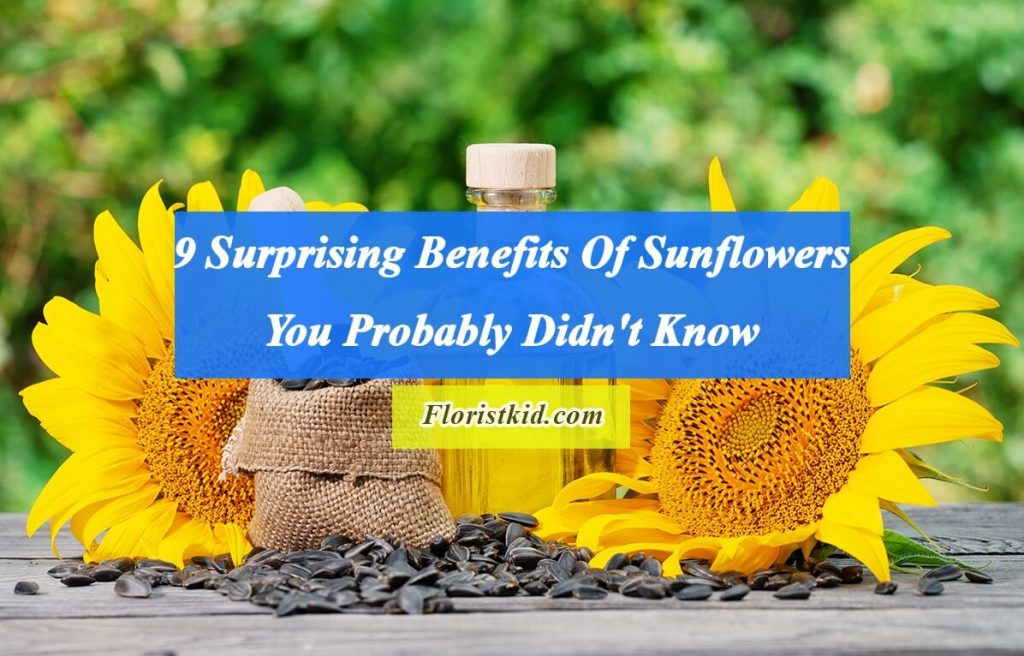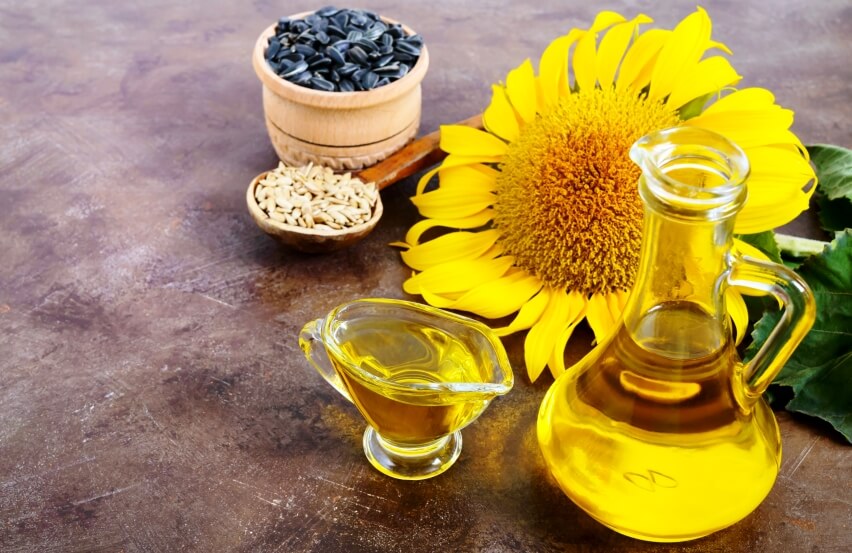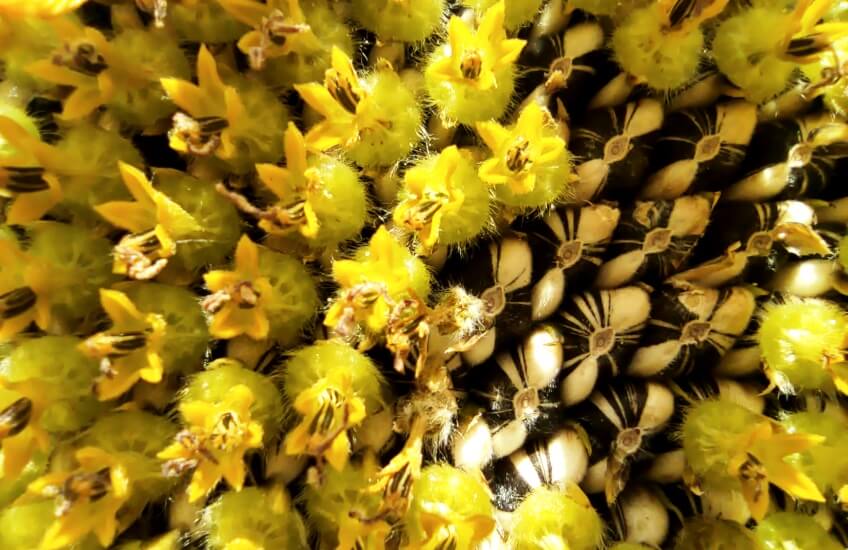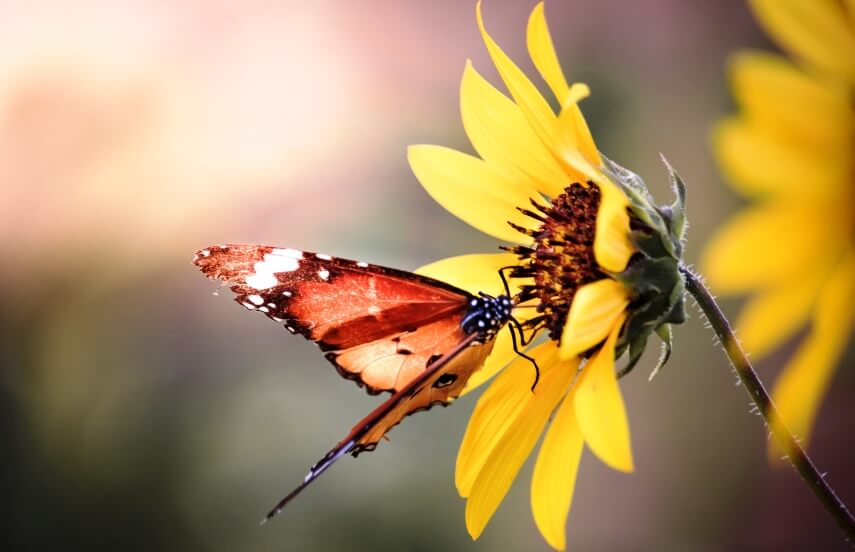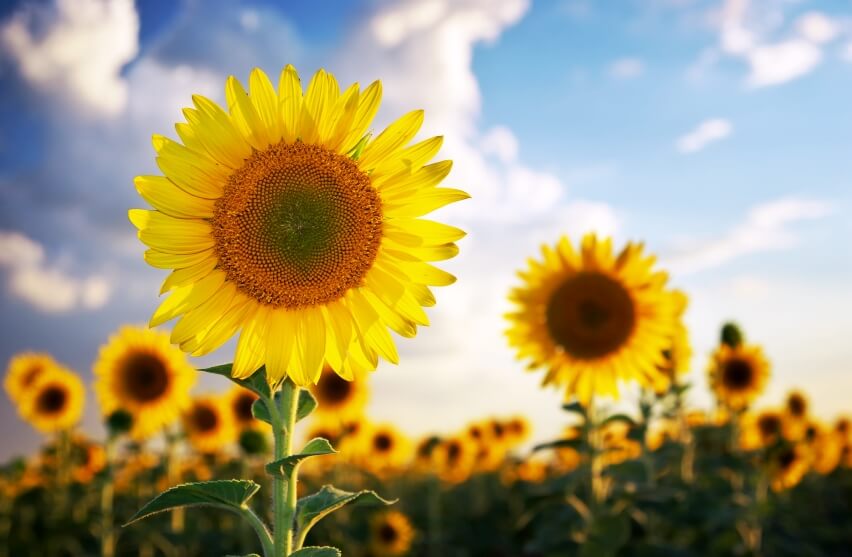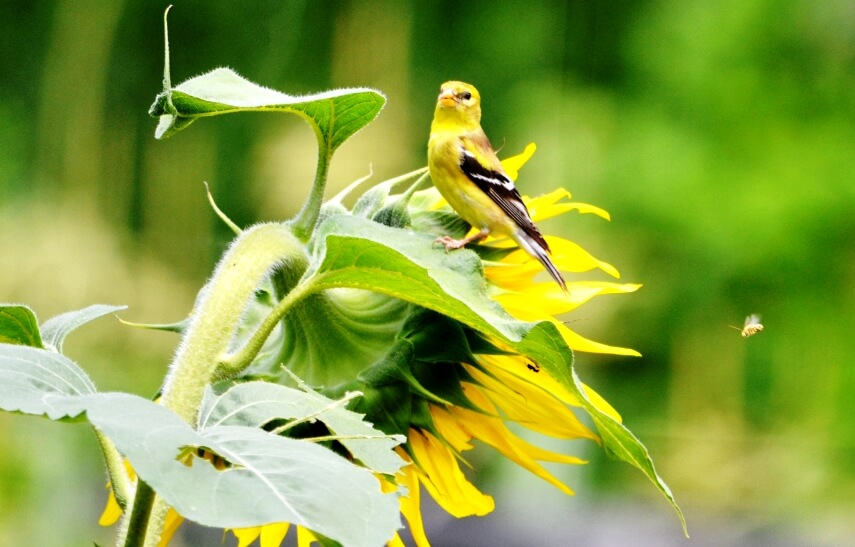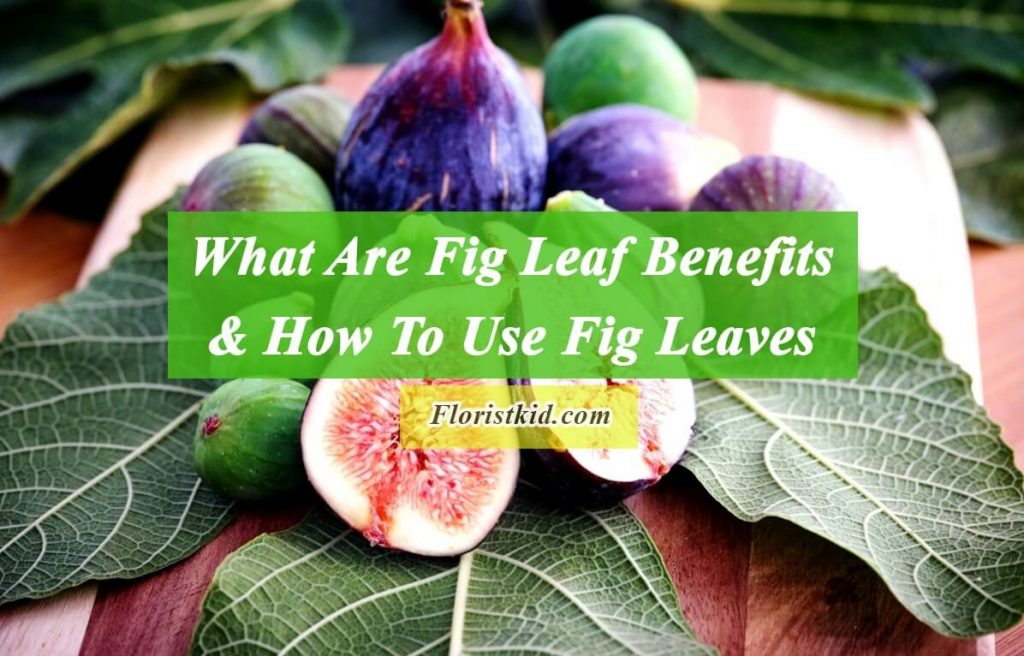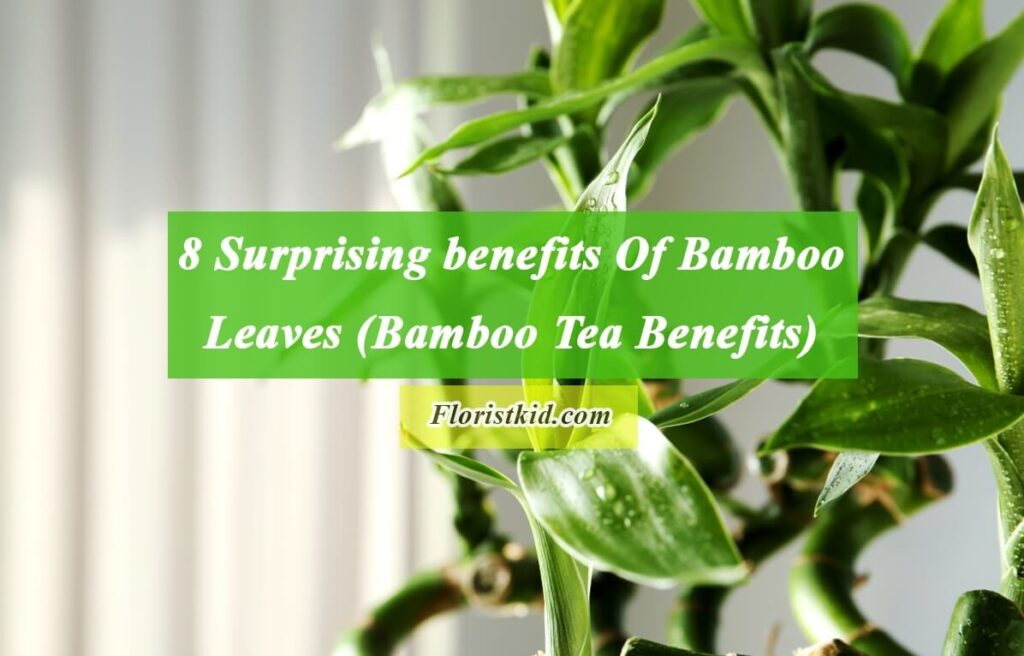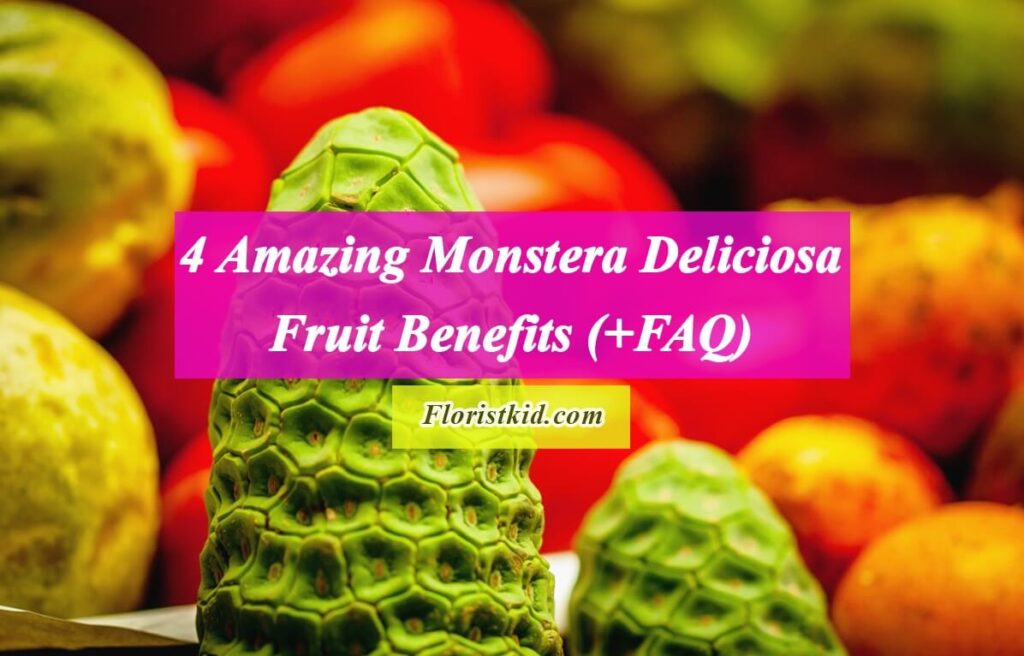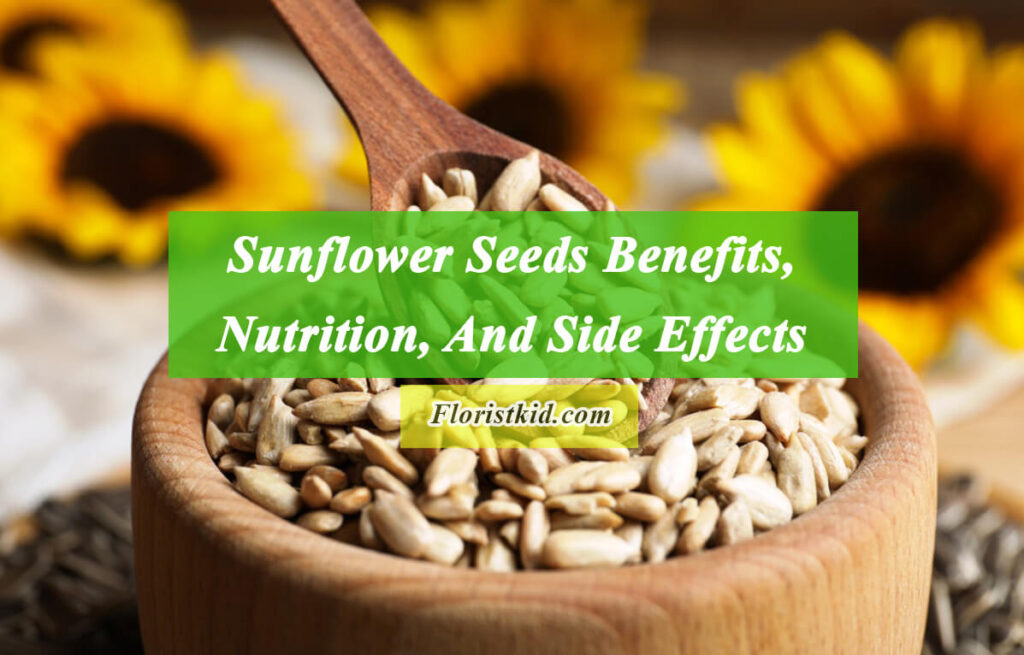Sunflowers (Helianthus annuus) are one of the largest and most colorful flowers, which come in a variety of hues (yellow, red, orange, maroon, brown). Their lovely blooms enliven the garden with a joyful burst of colors. Sunflowers are simple to grow from seed and are excellent for family & kids gardening.
Sunflowers are pest-resistant, high temperatures-resistant, and can attract pollinators and birds with their vibrant blooms that last all summer. They produce lovely cut flowers and provide food for both people and birds in the form of seeds and oil. Due to the numerous benefits of sunflowers, we will go through some of the most important sunflower benefits in this article.
If you are interested in plant benefits, you can also read
<<Fig leaf Benefits>> and <<Fiddle leaf fig Benefits>> articles.
About sunflowers
Sunflowers were cultivated and chosen by Native Americans for producing flour, food, and oil. In the 1500s, the Spanish introduced this plant from the New World to Europe, and by the 1700s and 1800s, the Russians were producing significant amounts of it. The Russian types we still cultivate today, such as “Mammoth Russian,” finally found their way back to North America [1].
Sunflowers are presently predominantly grown for oil production by Canadian and American farmers. However, plant hybridizers have also started developing appealing cultivars for the garden. Numerous sunflowers exist today, some of which look very different from the original tall, single-headed annual plant.
Sunflower benefits
These flowers, with their stunning, large, and vibrant blossoms, have a unique combination that offers us some great advantages. Here are a few significant benefits of sunflowers:
Vegetable Cooking Oil
Sunflowers can be used to produce vegetable oils. Sunflower oil is considered healthy since it has a low saturated fat level, implying that it has less harmful fat.
Sunflower oil is suitable for a variety of cooking processes. It can be used to make various cakes, cookies, and bakes. Additionally, you may roast veggies and fried food with it. Even a salad oil dressing can be made with it.
This oil can also be used for massages in addition to cooking. Being light and non-greasy oil makes sunflower oil an excellent choice for the skin. It is suitable for handmade and do-it-yourself cosmetic preparations, such as face scrubs.
Nutritious Edible Seeds
Sunflower seeds can be eaten by humans and animals. They are a wholesome and nourishing snack that can be included in a nutritious, well-balanced diet. The seeds can be consumed raw, roasted for added taste, sprinkled on top of salads for a little crunch, or used in baking cakes.
Sunflower seeds health benefits are numerous. They are a fantastic source of vitamin E, an antioxidant that supports the health of your skin, eyes, and immune system. They also include protein, iron, calcium, nitrogen, vitamins A and B, and vitamin E. These seeds are a fantastic addition to your diet, providing several health advantages [2].
Bringing Pollinators To The Garden
One of the fantastic benefits of sunflowers is that they are incredible at bringing pollinators to your garden. Sunflowers have a distinctive appearance that draws bees and other pollination insects. However, new studies have revealed that bees can detect tiny electric fields surrounding flowers and even see UV light patterns around them.
Most pollinators will browse your garden’s areas like supermarket aisles, discovering flowers as they go. However, sunflowers serve as enormous, towering beacons that, thanks to their dazzling UV patterns and electrical charges, may draw pollinators around. Increasing the number of pollinators in your garden will result in more pollinating of all the fruit trees, shrubs, and vegetables.
Have Different Varieties
As food and cut flowers, sunflowers come in a wide variety. If you prefer not to consume sunflower seeds, you can still use them as cut flowers. Even pollen-less variants produce lovely flower heads in various hues (including dark red and purple) for cutting but will not produce any pollen (or seed). Numerous pollen-less sunflower varieties are now available, but some of the more well-known types are Buttercream, Del Sol, Firecracker, Munchkin, Pro-Cut, and Sun bright [3].
If you are interested in growing your own sunflower seeds, there are many options available with various seed types, seed sizes, and bloom sizes. Sunflowers are popular among gardeners because of their huge stalks. However, there are also dwarf types available that have more “normal” plant heights.
Natural Weed Suppressants
Another benefit of sunflowers is their ability to spontaneously emit substances that hinder other plants from growing and competing with them. Allelopathy is the name for this phenomenon. For your garden, this might be advantageous or detrimental. The advantage is that your sunflower patch will have less weed issues. On the other hand, the drawback is that this phenomenon complicates companion planting.
Planting some flowers and vegetables near sunflowers can cause them to grow poorly. For instance, growing beans up a sunflower stalk may seem like a great companion plant, but beans are particularly sensitive to these plant growth inhibitors. You can certainly try, but make sure to keep your beans a safe distance from the sunflower and train them to grow up the stalk once they are big enough.
Good Source Of Bird Seeds
Sunflower seeds include many vitamins (E, B3, B5, B6, and B9), healthy plant lipids, and fiber. Additionally, they contain significant levels of selenium, copper, and manganese, which are not common in large quantities in most diets.
Sunflower seeds can be used as bird food. You can feed neighborhood birds who assist in eating pests in your yard or have your own birds. You can feed your backyard birds with numerous sorts of sunflower seeds, such as black oil, hulled, or striped sunflower seed varieties. Black oil seed is a premium kind that is said to draw a wider variety of birds into your yard.
Sunflowers are pretty easy to grow, so you can essentially acquire bird food for nothing. Another thing to remember while planting food for birds is that you do not have to roast the seeds like you would for human consumption. You can even leave the seeds on the sunflower plant for the birds to eat in the winter.
Beautiful Plants For Garden
Sunflowers are beautiful garden plants that may create stunning displays. Many people assume that these flowers are only yellow, but you can get them with petals with a variety of yellow, orange, and red hues, as well as those with more than one color on each petal.
This flower is perfect from Spring through Fall because of the combination of all these flower colors. They form a very strong and eye-catching bouquet for your house, as well as for brides in general, and especially for those seeking a more natural country style.
Making Natural Colors
Sunflower plant petals can be used to create natural dyes with hues ranging from yellow to orange. Along with the vibrant petals, the seeds can be utilized to make natural dyes, particularly the Hopi species, which can provide hues ranging from dark purple to grey.
Detoxing Heavy Metals From The Soil
That’s not all the benefits of sunflowers. Sunflowers can take in a wide range of poisons and compounds from the earth, which they subsequently store in their cells. After being absorbed, they will not leach out the chemicals again.
These incredible flowers’ roots can also aid in the soil’s detoxification of heavy elements like lead, arsenic, zinc, chromium, cadmium, copper, and manganese.

